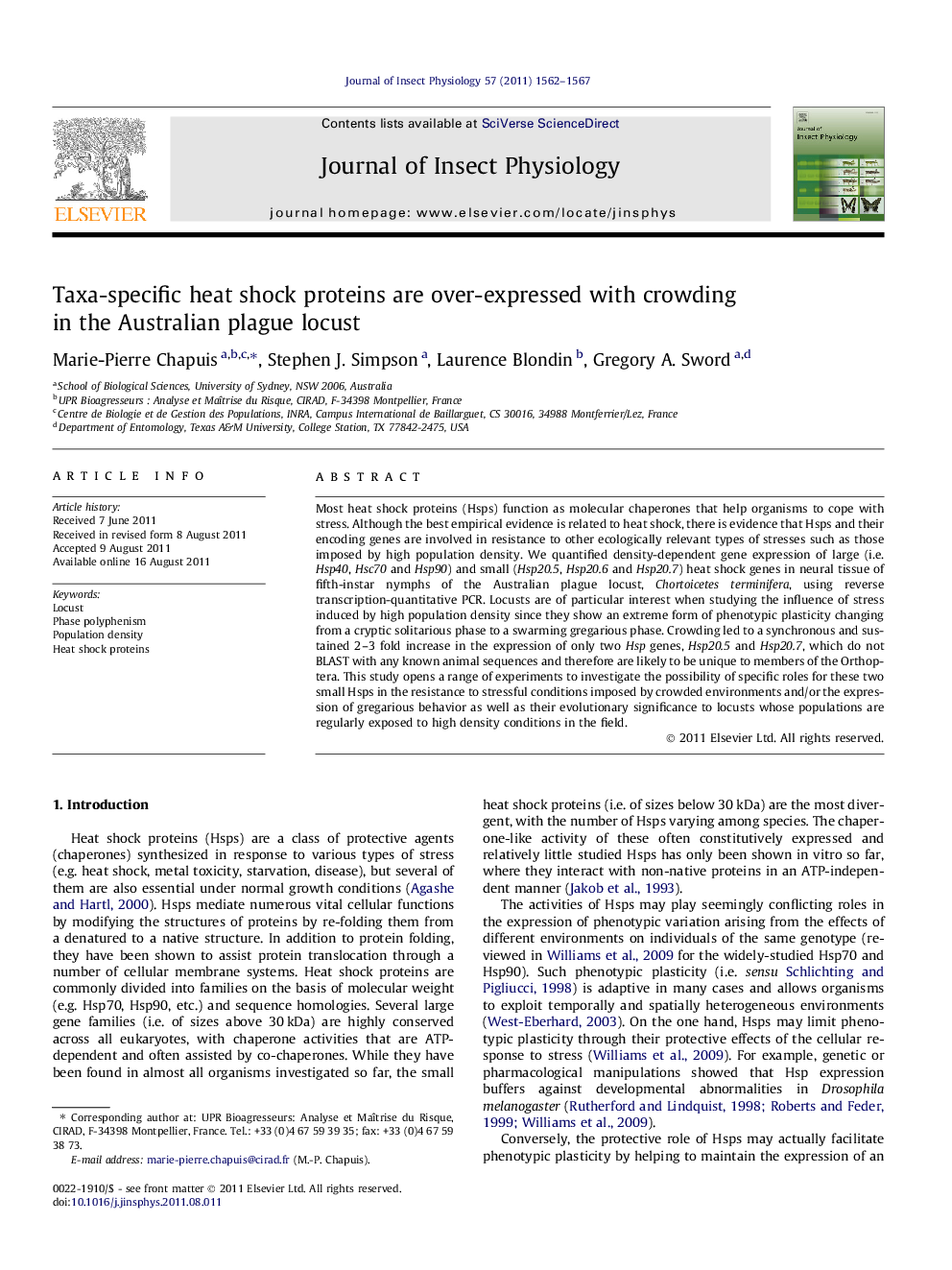| کد مقاله | کد نشریه | سال انتشار | مقاله انگلیسی | نسخه تمام متن |
|---|---|---|---|---|
| 2840692 | 1165348 | 2011 | 6 صفحه PDF | دانلود رایگان |

Most heat shock proteins (Hsps) function as molecular chaperones that help organisms to cope with stress. Although the best empirical evidence is related to heat shock, there is evidence that Hsps and their encoding genes are involved in resistance to other ecologically relevant types of stresses such as those imposed by high population density. We quantified density-dependent gene expression of large (i.e. Hsp40, Hsc70 and Hsp90) and small (Hsp20.5, Hsp20.6 and Hsp20.7) heat shock genes in neural tissue of fifth-instar nymphs of the Australian plague locust, Chortoicetes terminifera, using reverse transcription-quantitative PCR. Locusts are of particular interest when studying the influence of stress induced by high population density since they show an extreme form of phenotypic plasticity changing from a cryptic solitarious phase to a swarming gregarious phase. Crowding led to a synchronous and sustained 2–3 fold increase in the expression of only two Hsp genes, Hsp20.5 and Hsp20.7, which do not BLAST with any known animal sequences and therefore are likely to be unique to members of the Orthoptera. This study opens a range of experiments to investigate the possibility of specific roles for these two small Hsps in the resistance to stressful conditions imposed by crowded environments and/or the expression of gregarious behavior as well as their evolutionary significance to locusts whose populations are regularly exposed to high density conditions in the field.
Figure optionsDownload as PowerPoint slideHighlights
► We quantify gene expression of six heat shock proteins in the Australian plague locust.
► Hsps for which protein sequences are conserved across animals were not regulated with density.
► Crowding 2–3 fold increases the expression of only Hsp20.5 and Hsp20.7, which do not BLAST with any known animal sequences.
► These small Hsps may help maintain high density gregarious phenotypes typical of locusts.
Journal: Journal of Insect Physiology - Volume 57, Issue 11, November 2011, Pages 1562–1567